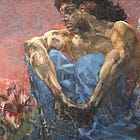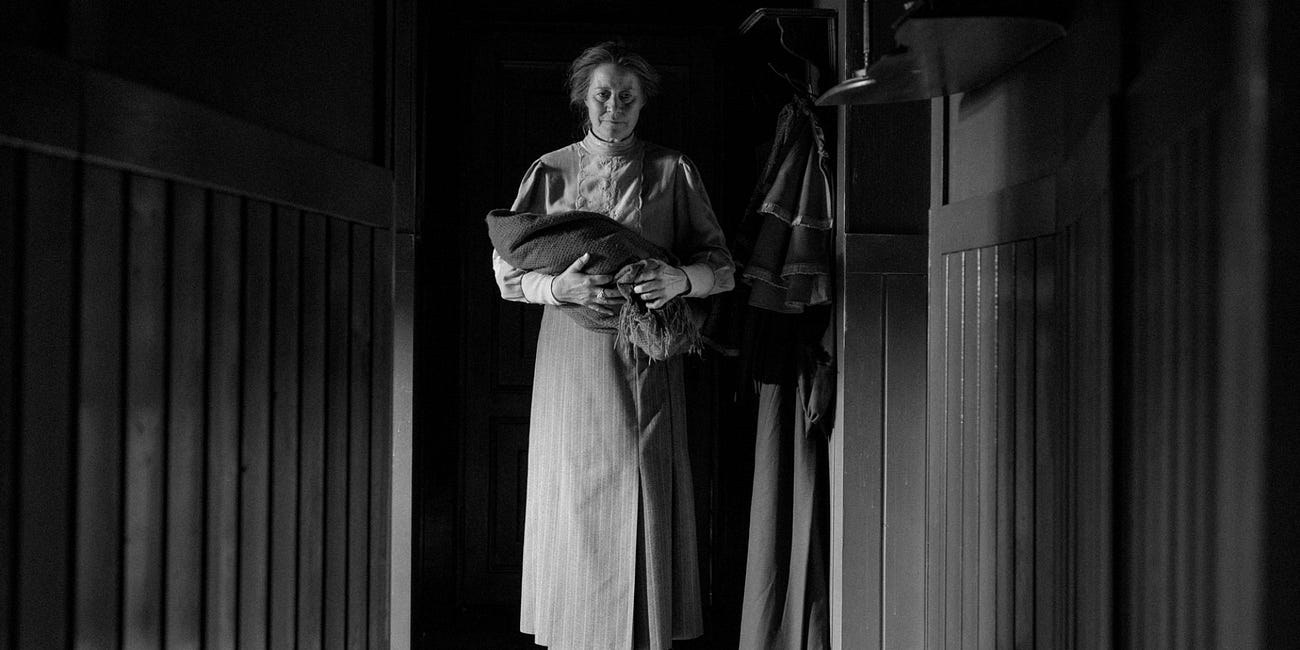Culture, Digested: Neil Gaiman is an Industry Problem
Around twenty years ago, publishing forgot how to sell books.
There are a lot of contributing factors here, from corporate conglomeration to divided attentions. But also, the cultural industries became overly reliant on the university system to produce its workers, leading to a domination of one small, cloistered class. And following the culture wars of the 80s and 90s, with protests against Piss Christ and a smattering of book bans, there was a sense that Flyover Country not only didn’t get art but maybe didn’t even deserve it. What a Waldenbooks wants to stock in the Salina, Kansas mall didn’t need to factor in anymore — just send them fantasy and romance shlock.
But with small bookstores closing, the tyranny of the front table at chain bookstores, the disappearance of writers from public discourse, the failing influence of authorities like critics and star editors, and a huge disparity between the number of aspiring writers and the number of aspiring readers, no one really knew how to sell a book. No one knew how to help build a writer’s career up from the ground up.
They were vaguely more confident about selling stars, as long as they came readymade with a brand. Hence the emphasis on a writer’s “platform” before they even think of publishing a book. And for a while, Neil Gaiman’s platform was the model of success. Writers were told to be more like Neil Gaiman, and he was championed not only for his books but for the sway he had over his audience. More so, actually. He also became one of the faces of “reading makes you a better person” campaign, part of this idea that no matter what you are reading (Lolita/Harry Potter/Mein Kampf) it is building empathy and making you superior to the people around you. (The other prominent face of this campaign? Saint Alice Munro.)
“Be more like Neil Gaiman.” And what was Neil Gaiman? Always online. He kept a public journal, logged into social media like it was his day job, and did lots of public appearances with marathon sessions of meet-and-greets and book signings. He took very public stances on political issues, leading him to be elevated as an important ally and spokesperson. He took up long correspondence with fans and students. That he was doing this not only to sell books but also to source broken teenage girls for his sex life was something of a running joke. The only people who truly benefit from erasing the boundaries between creator and audience are those eager for unhindered access to the awestruck and the manipulable.
Which made his marriage to Amanda Palmer something of a sordid little triumph. She had long been extolling the bohemian approach to artistic production: no middlemen, no bourgeois morality, no formal employment agreements. Even when she could afford a hotel room, she said, she preferred couch surfing and crashing with fans. She put out regular open calls for collaborators for her shows, offering not payment for their time but beers and hugs. She left her record company to become 100% crowdfunded, raising $1.5 million on Kickstarter, and making an undisclosed amount each month from 2,000+ patrons on Patreon and Substack while still making very regular pleas for more donations and more money.
But of course she wasn’t a bohemian, she was a multi-millionaire with at least four large and expensive international properties in her portfolio. Making her insistence that she was part of some sort of subculture of proletariat artmakers grotesque. When she gave her TEDTalk about crowdfunding — later turned into a bestselling book The Art of Asking — some of her biggest fans were tech billionaires. She and Neil became regulars at Jeff Bezos’s retreats, Tim Cook was a fan, etc. Her argument that institutions like record companies needlessly get in the way of the relationship between a creator and artist, which is a very appealing idea for the tech gurus who want everyone freelance, unprotected by labor law or unions.
Famously, Palmer’s decision not to pay collaborators for her tour after raising over a million dollars — she insisted the money was “gone,” but was vague on the details — got her a lot of bad press, but it didn’t dissuade people who were dying to be in her orbit from volunteering their time and energy. Gaiman and Palmer both created an aura of the poetic life, one filled with art and glamour and free love. If you hooked up with them, it wasn’t just not great sex you were getting, it was the kind of lifestyle fantasy that the creative industries fed upon: everything is meaningful, everything is charmed, every mishap and misadventure and difficulty could be transformed into art.
Two of the women who have accused Neil Gaiman of abuse were caught up in informal work arrangements with the couple. One was a caretaker for one of their properties, with seemingly no legal contract, just a vague promise that her work would be ultimately compensated with a small bit of land where she could build a house for her and her children. The other was a nanny who was homeless before she was employed by Palmer, and who was offered housing (in the home of the man she says was abusing her) but apparently not a set salary for her childcare responsibilities. She reportedly never got paid (a paltry amount) until after she had made an accusation against Gaiman.
Even taking into consideration their years of exploitation and abuse, Neil Gaiman and Amanda Palmer remain models of artistic success in the 21st century. Gaiman created an extremely sellable brand — affable, “oh goodness,” harmless Britishness wrapped up in a “I have read a lot of books” kind of storytelling — and the publishing industry used that not only to sell a lot of his books but that of his friends as well. Amanda Palmer has crowdsourced her way into a perfect little Patreon pyramid scheme, where all money flows to her and she gives back vibes and requests for domestic labor. This is the ideal artistic arrangement these days, where stars receive 95% of Patreon/Substack/other crowdsourced forms of income and everyone else competes for scraps. Both are reliant on a dedicated, servile audience, willing to turn over their time and bodies and cash to get a piece of that bohemian existence that only millionaires can manage these days. It’s the bohemianism not of Weimar, which Palmer constantly references, but the bohemianism of contemporary Burning Man, full of tech billionaires wearing the worst outfits you’ve ever seen in your life.
Accusations against bad actors follow a reliable structure. We dig through their work for signs that they were bad all along, we wonder why no one said anything sooner, a few select people will breathlessly explain how while they themselves were not harmed they could have been because they were so close to danger and didn’t know it. That’s fine. But it would seem more productive if we could discuss how the way our creative industries currently function leave people vulnerable to exploitation, how difficult it is to break through the veneer of a public figure who makes a lot of money for so many people, and the fantasies that allow people to confuse abuse with inclusion.
Recommended:
Patreon is a fucking scourge, man.
I wrote about the problem of evil with our great male artists a while back.
This is a good piece on how the economics of the area of New Zealand in which Neil Gaiman and Amanda Palmer live contributed to their ability to exploit women.
Jessica Almereyda wrote for us about maternal ambivalence in books and film, in case you missed it:



![Comic Excerpt] Ric Madoc, claiming to be a feminist writer when he had the goddess Calliope imprisoned and abused (Sandman #17) : r/DCcomics Comic Excerpt] Ric Madoc, claiming to be a feminist writer when he had the goddess Calliope imprisoned and abused (Sandman #17) : r/DCcomics](https://substackcdn.com/image/fetch/$s_!P2iP!,w_1456,c_limit,f_auto,q_auto:good,fl_progressive:steep/https%3A%2F%2Fsubstack-post-media.s3.amazonaws.com%2Fpublic%2Fimages%2F89262785-d09c-4182-a575-5ed25c6202d8_800x1280.png)


Thank you for this piece. I vividly remember the controversy around Amanda Palmer not paying her bandmates and you've beautifully expressed a connection I haven't seen anyone else make. Clearly they both felt their fame entitled them to anything their fans could give.
The inability to market books was predicted by the late culture critic Mark Fisher. He saw the beginning of the parabola that we are all riding the sharp curve of.
A lot of his criticism was in praise of “pop modernism”, culture that appealed to mainstream audiences while challenging easy understanding. This has gradually been replaced by the kind of garbage culture that leaves us in a state of what he called “depressive hedonia”, not a lack of pleasure, but I kind of lotus eating which prevents us from engaging in anything other than the pleasure principle.
I think that it’s hard for original writers and thinkers to have a voice on the internet. Whenever a new app attempts to impose order on what used to be controlled by editors and artists, something like Substack, it’s undermined by an algorithm that promotes horrible content. Rather than a place where intellectuals are privileged, the internet becomes a places where they are shoved into a crowd of idiots and paid content.